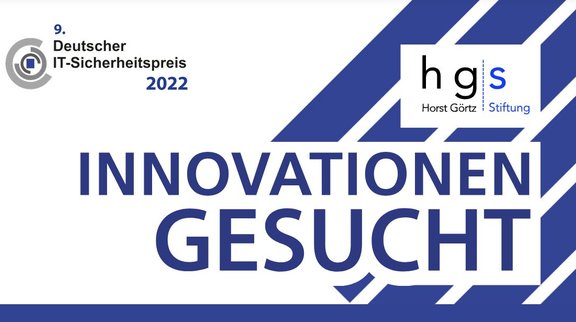News

LOEWE top professorship in Frankfurt for our cyber expert Dr. Haya Shulman
Dr. Haya Shulman, coordinator of the ATHENE research area Analytics Based Cybersecurity and head of the department Cybersecurity Analytics and Defenses at Fraunhofer SIT, has accepted the call to a professorship at the Institute of Computer Science at Goethe University Frankfurt as of February 1, 2022, and will thus also take up a LOEWE top professorship as of March 1, 2022. The LOEWE research funding program of the state of Hesse is providing around 2.18 million euros over a period of five years to endow the professorship. This had already been decided by the LOEWE Administrative Commission in the fall of 2021 on the basis of a recommendation by the LOEWE Program Advisory Board.
read more
Ten innovative cybersecurity startups in next round of accelerator program
The accelerator program "SpeedUpSecure" promotes startups with innovative solutions in the field of cybersecurity. Ten startups qualified for the program and will undergo a two-month intensive and targeted training program starting in early February. They will have access to a strong network of experts from business and research, who will be involved in the accelerator as mentors, jurors, coaches or with keynote speeches. The start-up incubator StartUpSecure at the National Research Center for Applied Cybersecurity ATHENE in Darmstadt launched the Accelerator. It is supported by the partner incubators for cybersecurity CISPA in Saarbrücken, Cube 5 in Bochum and StartUpSecure KASTEL in Karlsruhe.
read more
German IT Security Award 2022: Applications open until 15.02.2022
The IT Security Award, which is offered by the Horst Görtz Foundation and endowed with a total of 160,000€, will be awarded for the 9th time in 2022. The finalists and winning projects will be selected in a two-stage process by an independent jury of experts. Applicants can register until 15.02.2022 and submit their short version, which will be used by the jury to make a preliminary selection. Applicants who are accepted for the long version can then submit it in a submission period from 01.04.2022 to 31.05.2022.
read more
Optimizing cybersecurity through visual analytics
Six hours without Facebook, Instagram and Co.: For the US-based Meta Inc. this meant losses in the billions. But how do such problems occur and how can they be identified as quickly as possible? ATHENE researchers at Fraunofer IGD have been working on this complex of issues for several years with the goal of making network data more understandable. This will enable more people to assess what is happening in their own network. Current and future possibilities for visual analysis should simplify the work of security experts.
read more
ATHENE researcher receives award for dissertation
For her dissertation "From the Quest to Replace Passwords towards Supporting Secure and Usable Password Creation", Dr. Verena Zimmermann received one of the three prizes awarded by the Gesellschaft für Datenschutz und Datensicherheit e.V. (GDD) at the end of last year for young academics. Her work was done as part of the ATHENE project "Integrating Safety and Security Aspects in Secure Urban Infrastructures" in the SecUrban research area and one of its predecessor projects. Verena Zimmermann is a researcher in the Work and Engineering Psychology Research Group at the TU Darmstadt.
read more

ACM appoints ATHENE researcher as Distinguished Member
The Association for Computing Machinery (ACM) has named Prof. Max Mühlhäuser a „Distinguished Member“for his outstanding scientific contributions in computer science. Prof. Mühlhäuser is head of the Telecooperation Lab at the Department of Computer Science at TU Darmstadt, and coordinates the User-centered Security and Privacy (UCSP) research area in ATHENE.
read more
